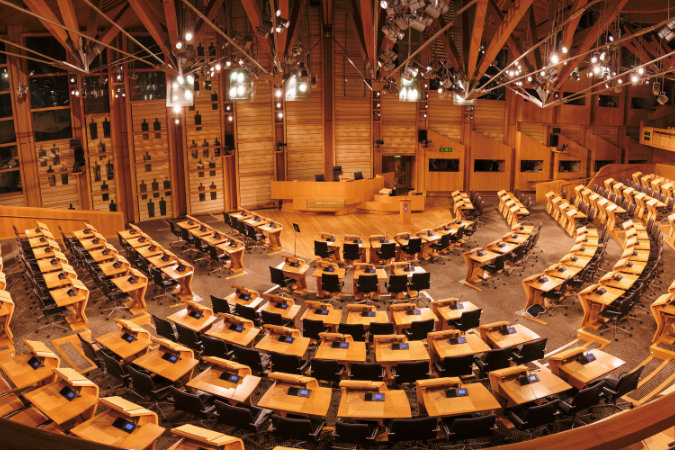Today the Scottish Government published an updated Strategic Framework giving a new staged approach to easing protective measures which will help Scotland manage and recover from the ongoing coronavirus (COVID-19) pandemic.
In a statement to Parliament, First Minister Nicola Sturgeon confirmed the details of the updated Strategic Framework to manage COVID-19 primarily through public health advice, vaccination, and treatment rather than legal restrictions.
The First Minister also set out an indicative timescale for remaining legal protections to be lifted:
- vaccine certification will no longer be legally required from Monday 28 February, although the app will remain available so any business that wishes to continue certification on a voluntary basis to reassure customers will be able to do so.
- current legal requirements on the use of face coverings, the collection of customer details for contact tracing purposes, and for businesses, service providers and places of worship to have regard to guidance on Covid and to take reasonably practicable measures set out in the guidance are expected to be lifted on 21 March, subject to the state of the pandemic.
- access to lateral flow and PCR tests will continue to be free of charge, ahead of a detailed transition plan being published on the future of Scotland’s test and protect programme in March
People who test positive for COVID-19 will continue to be asked to self-isolate to reduce the risk of infecting other people. Any changes to the recommended period of self-isolation will be considered on an ongoing basis.
The First Minister said:
Covid is unfortunately still with us and we must therefore remain vigilant and prepared for the threats it poses. But today’s new framework is an important moment in our recovery. It marks the point at which we move away, hopefully sustainably, from legal restrictions, and rely instead on sensible behaviours, adaptations and mitigations.
Our return to normality must go hand in hand with a continuing determination to look out for and after each other. All of us have a part to play in ensuring a safe and sustainable recovery, so please continue to follow public health advice on getting vaccinated, testing as regularly as appropriate, wearing face coverings when required or recommended, and keeping rooms ventilated.
All of this still matters, even as we lift the remaining legal requirements. It is how we can keep ourselves and each other safe, as we recover from Covid and look forward together to brighter and better days ahead.”
In response to the First Minister’s announcement the Scottish Licensed Trade Association released the following statement:-
SLTA hails end to Covid passports as ‘common sense’ but says Scottish Government’s messaging needs to be more ‘positive’
Today’s announcement by the First Minister that the Covid passport scheme will end on Monday has been hailed as common sense by the SLTA (Scottish Licensed Trade Association).
While welcoming the news, however, the trade association expressed disappointment that the legal requirement to wear a face covering in indoor settings must continue until March 21. Similarly, the requirement for businesses to retain customer contact details must also continue for another month.
Colin Wilkinson, SLTA managing director, commented:-
Calling a halt to Covid passports is common sense and fantastic news for hospitality businesses, particularly the late-night sector where restrictions over the last two years have had such a severe impact.
However, the legal requirement to wear a face covering in indoor hospitality and other settings for another month is not the news we wanted to hear today from the First Minister at a time when our sector needs more positivity and confidence – confidence that will encourage customers to start getting out and about again.
Mr Wilkinson also expressed concern for the viability of some town and city centres over the Scottish Government’s advice to adopt “hybrid” working patterns.
We need to see more people in our town and city centres – if they’re working from home there are no office lunches or after-work drinks.
It is encouraging for Scotland’s licensed hospitality venues to see more people returning to their offices and workplaces in recent months as this will breathe life back into our city and town centres – but let’s be more positive about the messaging.
There is still a very, very long and uphill struggle ahead for many hospitality businesses with ongoing issues to overcome and an onus on the Scottish Government to support our industry which is key to the economy and jobs.”
A copy of the Scottish Government’s updated Strategic Framework can be found here.

